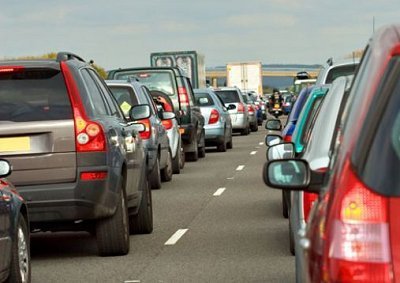You a Stomper, a Pumper? Sies!

The study shows that 59% of British drivers aren’t using their vehicle’s brakes as per the British Highway Code. Kwik-Fit UK said: “As a result it puts the safety of others, as well as the health of their own vehicles, at risk."
In the study, 1.7-million drivers admit to having caused an accident through their own braking errors, while 4.3-million say they have been in an accident as a result of another driver’s poor braking.
FROM STOMPERS TO TAILGATE CHARLIES
Kwik-Fit’s research reveals that many drivers are using inappropriate braking techniques. The study showed that drivers fall into six types of braking behaviour:
1 Engineers – Over 11-million drivers use their gears to slow down. This approach is more popular with older drivers as it used to be taught in driving schools. Braking systems have improved and this method is considered outdated. Brake pads and discs are much easier and cheaper to replace than engine, clutch and transmission components.
2 Hoverers – More than three-million drivers hover their foot over the brake pedal and apply the brakes when needed.
3 Pedal pumpers - One in 12 drivers (2.7-million) admit to slowing down by repeatedly applying the brakes and then easing off. This style is seen most often among drivers under 24-years-old.
4 Tailgate Charlies – A half-million drivers, most of whom are 25-34, said they apply the brakes only when they are close to traffic/cars ahead of them and do so at the last minute. This is "in case it speeds up".
5 Stompers – 800 000 drivers prefer to brake hard at first and then ease off as they get closer to vehicles in front of them.
6 Foot Controllers – Fewer than half of road users (41% or 13.8 million) use the technique which gives them maximum control of their car; applying brakes early and gently at first, then increasing the pressure as they get closer to traffic.
‘BAD BRAKING HABITS’
Kwik-Fit communications director Roger Griggs said: “The research shows that there are a huge variety of braking techniques on our roads and some of them are less than ideal. Whether it’s through lack of concentration, bad habits or desperately trying to save time on their journeys, people are trying all sorts of braking tactics.
“Braking too early, too late, too suddenly or even not at all can create real problems on the roads. Poor or unusual braking not only makes driving stressful for other motorists but is responsible for a lot of accidents. The latest official statistics show that accidents caused by sudden braking account for the death or serious injury of almost one thousand people a year.
“This is all before you think of the damage bad braking can do to a car. If they are used too harshly, brake pads can wear out quicker than expected, putting drivers at risk of serious brake failure if they haven’t had them regularly checked.”
Related News


